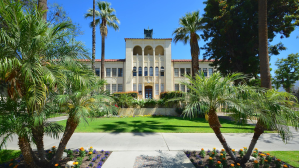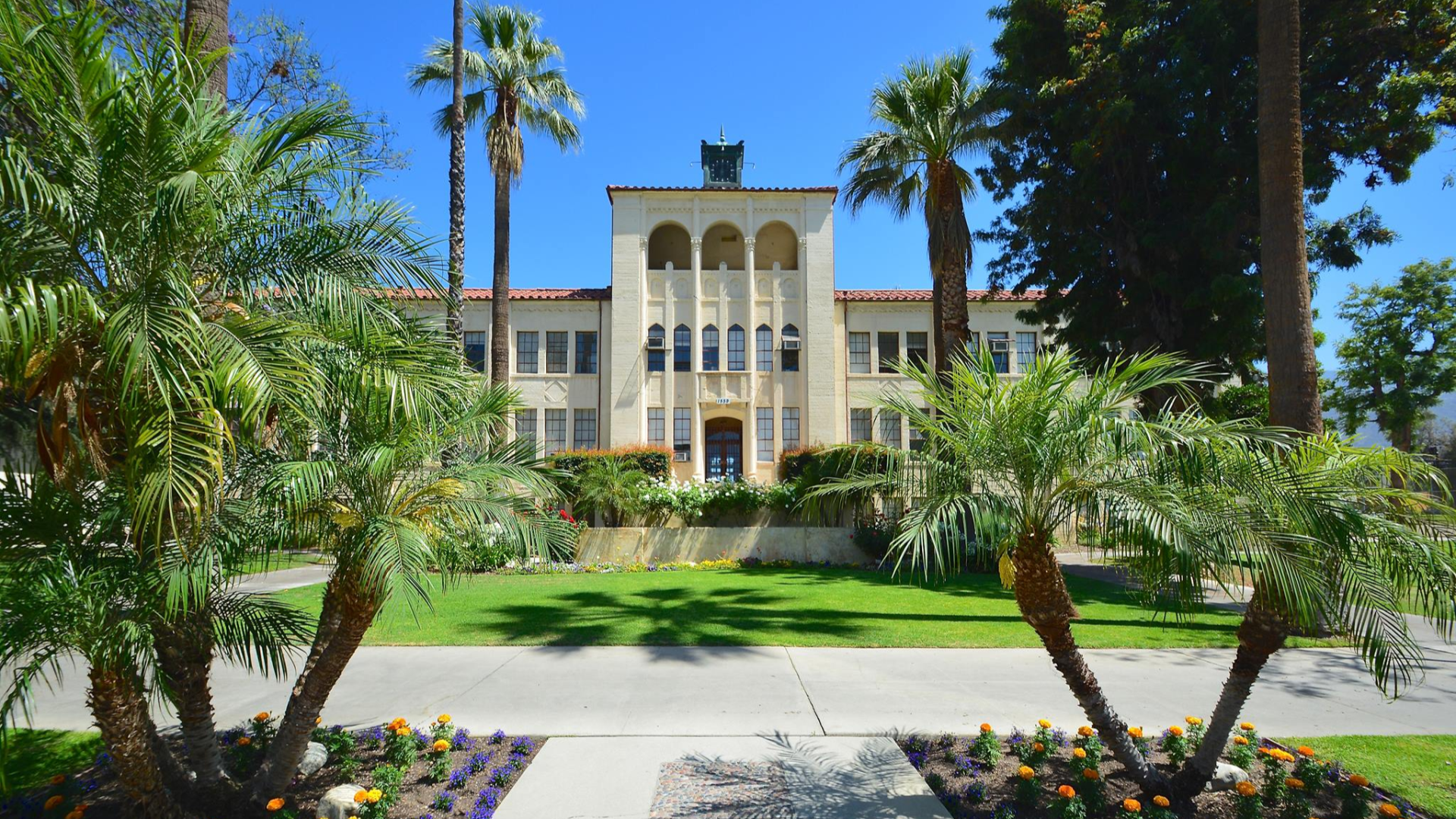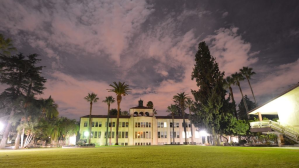In this series

The late missiologist Ralph Winter envisioned a place to “awaken” a million evangelicals to the world’s unreached people groups. It took nearly 10 years of fundraising, and donors big and small, to pay off the $15 million property in Pasadena, California, that became the US Center for World Mission (now Frontier Ventures) and William Carey International University (WCIU).
More than four decades later, with the missions landscape evolving and the Southern California cost of living continuing to skyrocket, Frontier Ventures and the university are in a non-binding agreement to sell the majority of the property their forebears had rallied to buy.
Frontier Ventures president Fran Patt and WCIU president Kevin Higgins confirmed to CT that they’ve been in talks with a potential buyer for the past month. Up for sale are roughly 15 acres of campus, a 2.5-acre soccer field near the Frontier Ventures office building, and a yet-to-be-determined portion of surrounding property, which includes homes, dorm-style residences, and office space owned by WCIU.
The partner ministries plan to maintain a smaller footprint in Pasadena, keeping the Frontier Ventures building known as Hudson Taylor Hall and, at this point, at least half the homes they own. Patt and Higgins declined to discuss the estimated value of the property or the amount of the offer.
“There are still a number of challenges: we need to agree on all the exact details, and that will take time,” Higgins wrote in a blog post in December. “Even once we get to that agreement, there will be significant time needed as the buyer would need to secure their funding.”
The ministries’ leaders have considered selling off a portion of the property for at least a decade, prompted by rising living costs, California’s employment laws, and the shift in missions activity away from the US and toward the Global South, Higgins said in an interview with CT.
Already, all of WCIU’s degree programs are offered online through distance learning, and a majority of Frontier Venture’s 200-person staff work elsewhere. All but about 60 of these staffers raise their own funding as missionaries, totaling between $3 million and $4 million a year.
“The world doesn’t come from one place,” said Patt, who is based in Pennsylvania. “That, combined with the strong stewardship issues, has meant that success has pushed us out of Pasadena.”
Decreasing their presence in California will allow Frontier Ventures to expand in Africa and Asia, where they would be closer to a growing number of eager missionaries as well as the unreached people the ministry targets. (Patt and Higgins told CT that they don’t anticipate the ministries will purchase property elsewhere, though.)
However, a number of the ministry’s supporters have challenged the decision to sell off a portion of the historic property. Through a campaign called Save the Campus, they argue that the pending sale violates the founder’s intentions and the cause that many of them worked and gave toward.
Winter described what was then the US Center for World Mission as a school, think tank, missions agency, and cooperative center; it was a place where Christians could work toward the common goal of reaching what he had termed “hidden” people groups—a relatively new concept in missions at that time.
Back in 1984, the property—“a 35-acre former college campus, including 13 campus buildings and 83 off-campus houses, worth altogether about $20 to $25 million”—hosted 300 people from 70 missions agencies on a daily basis.
“It was accessible from the Los Angeles International Airport,” noted Winter. “Southern California represented a veritable Pentecost of nations (107 languages in the homes of public school students) and nowhere else were so many mission agencies concentrated.” When his fundraising campaign asking donors to give just $15.95 took too long to raise support, the former missions professor recruited 8,000 people to contribute the “last $1,000” needed to pay off the property (really $8 million in total).
“We were giving with the idea not that the campus was the most important part of this, but that the organization was focusing attention on mobilizing human resources to reach the unreached,” said Patt, who along with his wife were on staff in the ‘80s and gave $1,000.
As president, Patt shared a similar sentiment when he addressed the sale last fall:
Frontier Ventures’ purpose for a possible sale of a portion of FV’s property is to make the best and most effective use possible of our resources for the vision God has given us. The purpose of our organization is and always has been to see Jesus proclaimed and the Church established in all peoples.
The vision was never just for the use of property in Pasadena. All that was invested into the property, the people, and the purpose will continue to be directed toward ministry among the unreached. It’s what we stood for then, and it’s what we’ll continue to stand for, God willing, for the next 40 years.
Those involved in the Save the Campus campaign, which has about 750 supporters on Facebook, see the role of the property and the purpose of that initial campaign differently. They present Winter’s vision as specifically for a self-sustaining missions base—supported through individual missionary fundraising and rent raised through the dozens of houses on the property. Save the Campus opposes any sale or reconfiguration of the Pasadena location.
“Selling a portion of the WCIU property holdings will irreparably negate the sacrificial donations of time, life, and finances, both now and in the past, of all those who have contributed to WCIU’s permanent presence here in Pasadena,” they wrote in a letter to board members last month.
Several former WCIU students have shared that they are praying against the sale, and challenge the ministries’ argument that even Winter himself would have shifted perspectives with the times.
“Yes, he was pragmatic, but so pragmatic that he would recognize this for what it is: A final coup against the vision God gave him,” Save the Campus wrote on its website. “It is unquestionably a tragedy and a bit ironic that something which represents such a hard-won symbol of faith is being lost for lack of faith.”
While opponents fear the sale betrays the ministries’ commitment to reaching the unreached, current leadership see it as a way to better fulfill that mission.
Patt and Higgins say the majority of current staff and volunteers are behind the move toward what they deem a more “decentralized model of ministry.”
“In the 1970s, the task of reaching those 16,000-plus unreached people groups was too big for any one organization, and there needed to a place of collaboration,” said Higgins. “The task now—because of the shift in Global South missions—is still too big for one organization, but it’s also too big for one place of collaboration.”



